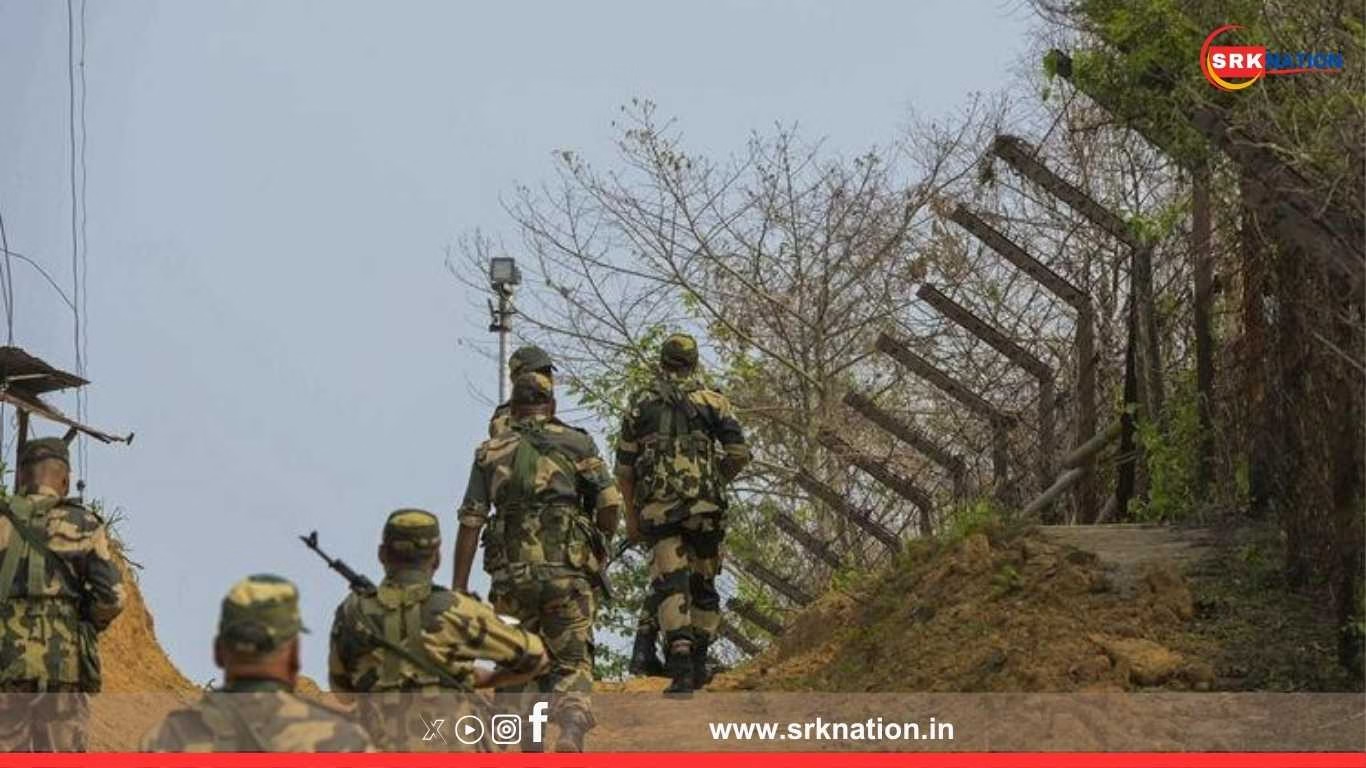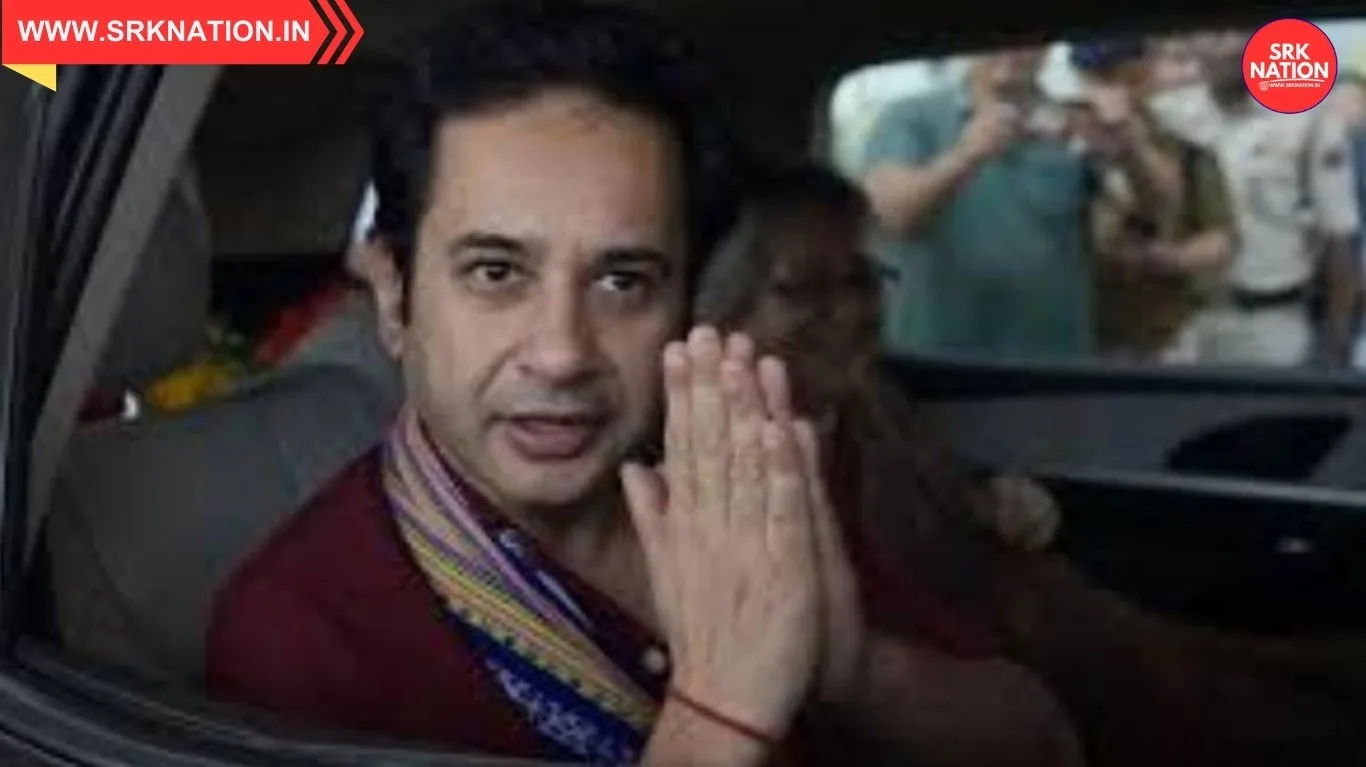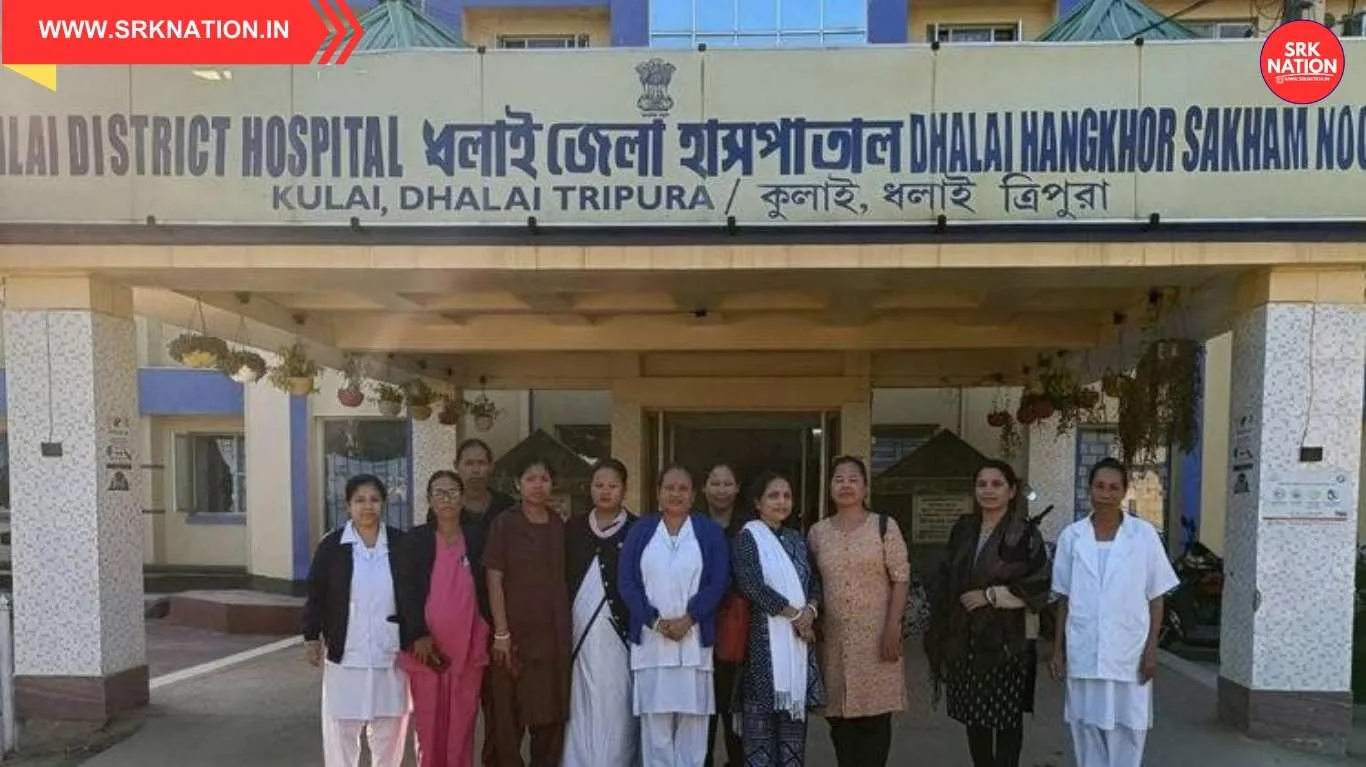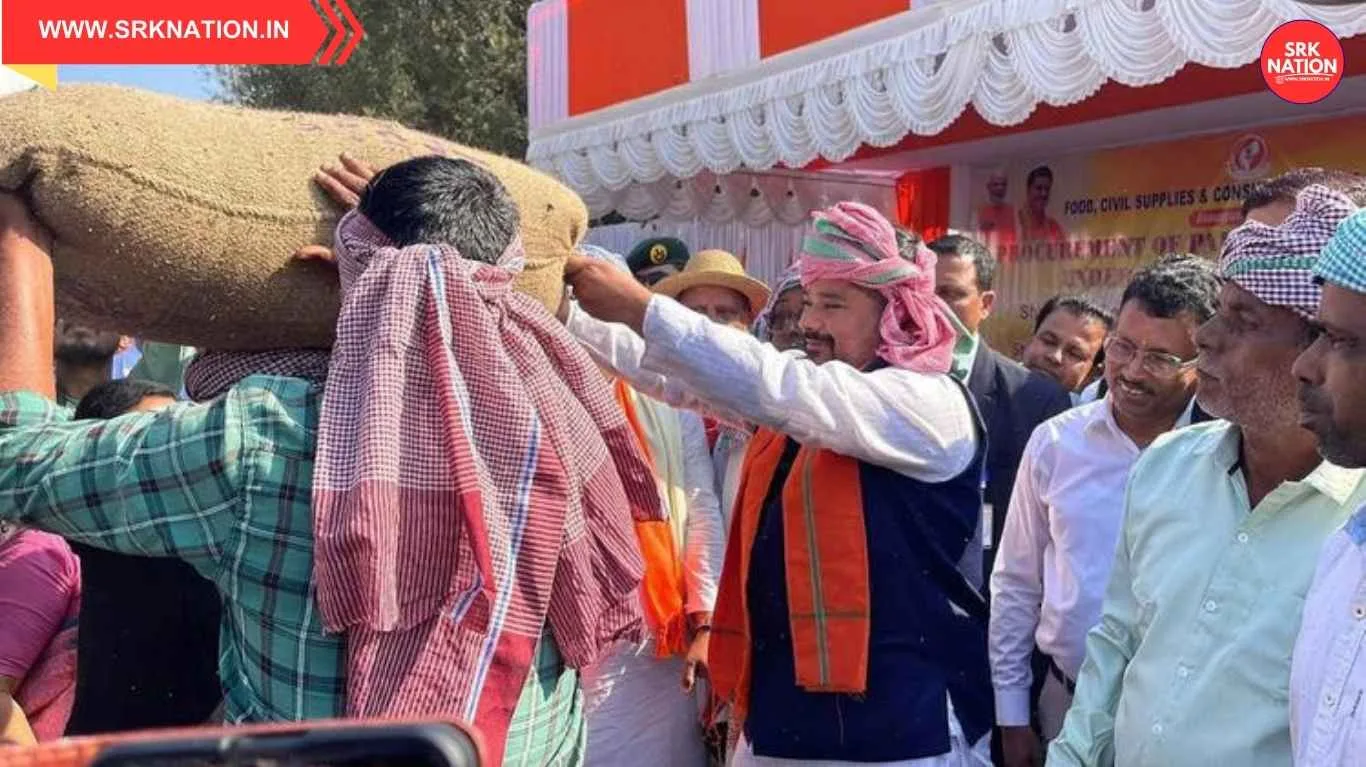In a significant development along the Indo-Bangladesh international border, two Bangladeshi nationals involved in cross-border smuggling were shot dead by Border Security Force (BSF) personnel in South Tripura district, while two Indian nationals believed to be their local accomplices were apprehended. The incident has once again brought the spotlight back on the rising threat of transnational smuggling rackets operating along the porous India-Bangladesh frontier.
According to official reports from BSF and local administration, the incident occurred in the early hours near Mohanpur village under the Santirbazar sub-division of South Tripura, a region often flagged for narcotics trafficking, cattle smuggling, and illegal crossings.
Incident Timeline and Details
The shootout took place near border outpost (BOP) No. 131, which lies in close proximity to the international boundary. A patrolling team of the 42 Battalion of the Border Security Force observed suspicious movement along the fencing and issued a challenge to the individuals approaching from the Bangladeshi side.
| Event | Details |
|---|---|
| Location | Mohanpur Village, South Tripura |
| Date | Early morning hours |
| BSF Battalion Involved | 42 Battalion |
| Number of Bangladeshi Nationals Shot Dead | 2 |
| Number of Indian Nationals Arrested | 2 |
| Items Recovered | Narcotics packets, Bangladeshi SIM cards, rope ladders |
| Border Outpost (BOP) | 131 |
Upon being challenged, the intruders allegedly attempted to flee and even resisted with sharp-edged weapons and blunt objects. In accordance with standard operating procedure (SOP), the BSF issued several warnings before resorting to non-lethal measures, including tear gas shells and rubber bullets. However, when the intruders continued to pose a threat and attempted to cross into Indian territory aggressively, the personnel fired in self-defense, resulting in the death of two Bangladeshi smugglers on the spot.
Arrests of Indian Nationals
Following the shootout, a search operation was swiftly launched in the vicinity. Two Indian nationals were found hiding in a banana plantation nearby. Preliminary interrogation has revealed that the duo, hailing from nearby villages in Santirbazar, had facilitated communication, transport, and escape logistics for the deceased Bangladeshi smugglers.
Police sources confirmed that mobile phones recovered from the accused contained Bangladeshi numbers, financial transaction messages, and images of smuggled goods, pointing to a well-organized cross-border racket.
| Name | Residence | Status | Link to Smuggling |
|---|---|---|---|
| Ratan Debbarma | Baikhora, South Tripura | Arrested | Local liaison for cross-border gangs |
| Alok Das | Manu Bazar region | Arrested | Supplied logistics and safe house |
Smuggling Dynamics at the Tripura Border
The Tripura-Bangladesh border, stretching over 856 kilometers, is often cited as one of the most vulnerable corridors for illegal activities. Smugglers typically exploit gaps in fencing, forest cover, and riverine stretches to traffic narcotics, cattle, gold, fake currency, and even arms.
The South Tripura sector in particular has emerged as a hub for narcotic smuggling, especially of methamphetamine (Yaba tablets) and brown sugar, given its logistical proximity to Bangladesh’s Chittagong and Cox’s Bazar areas.
| Common Items Smuggled | Route | Estimated Value (Annual) |
|---|---|---|
| Cattle | From India to Bangladesh | ₹300 crore |
| Yaba tablets | From Bangladesh to India | ₹150 crore |
| Fake Currency | From Bangladesh to India | ₹50 crore |
| Arms and Ammunition | Bidirectional | ₹25 crore |
Political and Diplomatic Implications
While India and Bangladesh share strong diplomatic ties and have agreements in place for border coordination and anti-smuggling operations, such incidents often create temporary strain. The Ministry of Home Affairs (MHA) in Delhi has reportedly been briefed on the situation, and the Bangladesh Border Guard (BGB) has been formally informed via flag meeting protocol.
Local officials indicated that the BGB has acknowledged the deaths and agreed to cooperate in verifying the identities of the deceased. Both nations have mechanisms under the Coordinated Border Management Plan (CBMP) to address such events in a structured, non-confrontational manner.
Security Measures Intensified Post-Incident
In the aftermath of the encounter, BSF and Tripura Police have heightened surveillance in the region. Additional troops have been deployed along suspected infiltration routes, and night vision equipment is being used to monitor movements near the fencing. Intelligence inputs suggest the presence of at least two more smuggling gangs operating along the same stretch.
A senior BSF official emphasized, “We are committed to curbing all cross-border illegal activity. Our aim is to safeguard national security without triggering unnecessary violence. However, the use of force becomes inevitable when threats are imminent and lives are at stake.”
Civilian Response and Local Tensions
The incident has triggered mixed reactions in local villages. While many residents have applauded the BSF for effectively preventing smuggling, others expressed concern about increased militarization and restrictions in their daily lives, especially for farmers whose lands lie near the fencing.
Human rights observers have once again raised the issue of non-lethal enforcement, urging authorities to prioritize capture over confrontation. However, BSF maintains that all actions followed clear operational protocols and were necessitated by the nature of the threat.
Repeat Offenses and Border Crime Patterns
What makes this incident particularly concerning is that one of the arrested Indian nationals was reportedly a repeat offender, previously booked under the Narcotic Drugs and Psychotropic Substances (NDPS) Act. This points to a deeper issue of persistent local support to cross-border criminal networks.
Intelligence agencies have been urging a more integrated civilian-police-BSF intelligence grid to map these patterns and prevent local recruitment by Bangladeshi gangs.
Government Action and Policy Implications
The state government of Tripura has convened a high-level meeting with security agencies and district officials to review anti-smuggling frameworks and examine gaps in border fencing and village surveillance. A fresh proposal to install drone-based surveillance systems and floodlights along critical stretches is expected to be forwarded to the Ministry of Home Affairs.
District Magistrate of South Tripura noted, “We are also exploring vocational training schemes to discourage local youth from getting involved in criminal activities. Economic deprivation is a major driver of these incidents.”
Conclusion
The shooting of two Bangladeshi smugglers and arrest of two Indian nationals in South Tripura underscores the intensifying challenge of cross-border crime and the BSF’s vigilant enforcement along the Indo-Bangladesh frontier. It reflects both the success and the complexity of managing national security in sensitive border regions, where geopolitical, economic, and human dimensions converge.
As authorities continue to investigate the smuggling network and plug vulnerabilities, the incident serves as a stark reminder of the need for robust, humane, and technologically aided border management—ensuring national security while maintaining peace and respecting international norms.
Disclaimer: This article is based on initial reports, local police briefings, and defense official statements. Details may evolve as investigations continue. The events described involve security operations near an international border and are subject to diplomatic protocols. Readers are encouraged to follow official channels for future updates.











